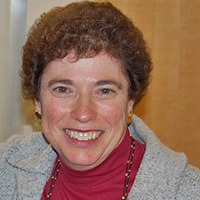Campus News
Claire Max to retire as director of UC Observatories
Claire Max, director of the University of California Observatories (UCO) and the Bachmann professor of astronomy and astrophysics at UC Santa Cruz, will retire at the end of June.

Claire Max, director of the University of California Observatories (UCO) and the Bachmann professor of astronomy and astrophysics at UC Santa Cruz, will retire at the end of June.
Constance Rockosi, UCSC professor of astronomy and astrophysics, will serve as interim director of UCO, effective July 1, 2021. She currently serves as the UCO associate director for technical facilities. A national search for a new permanent director is under way, led by the UC Office of the President.
UCO is a multi-campus research unit with headquarters at UC Santa Cruz. It operates Lick Observatory on Mount Hamilton and the technical labs at UC Santa Cruz and UCLA, and is managing partner of the W. M. Keck Observatory in Hawaii. UCO is also the center for UC participation in the Thirty-Meter Telescope (TMT) project.
Max said she has enjoyed leading UCO for the past seven years. “It’s been tremendous fun to see all the good things UCO is doing and to try to make it stronger,” she said. “I’ve enjoyed working with the UCO team and reaching out to the other campuses to get them more involved.”
Max was appointed interim director in 2014 at a time of great uncertainty about continued funding for Lick Observatory, but the financial situation has since improved. “Our whole situation was very precarious back then, and it’s really turned around now,” she said. “The UC Office of the President has been very positive about its support for UCO in general and for Lick Observatory.”
A $1 million gift in 2020 established the William Wallace Campbell Director’s Fund for Lick Observatory, creating an endowment to support the director’s priorities for the observatory.
The past year also brought new challenges, as the COVID–19 pandemic limited access to the facilities and an August wildfire threatened Lick Observatory. Firefighters were able to protect the main buildings and all of the telescopes from serious damage, and astronomers were soon able to resume telescope operations. The fire burned two storage buildings and damaged infrastructure, however, and recovery efforts are ongoing.
Keck Observatory’s twin 10-meter telescopes, equipped with state-of-the-art observing instruments and adaptive optics, continue to be the world’s most scientifically productive optical and infrared telescopes. “In my mind, Keck is the jewel in our crown,” Max said. “It has really made UC as good as it is in astronomy. Having access to these wonderful facilities at Lick and Keck has allowed UC to attract top faculty members in astronomy.”
Max is a pioneer in the field of adaptive optics, a technology that removes the blurring effects of turbulence in the Earth’s atmosphere and has revolutionized the capabilities of ground-based telescopes. She served as director of the Center for Adaptive Optics at UCSC prior to her appointment as director of UCO, and said she hopes to resume her engagement in adaptive optics research after her retirement.
“I hope to get more involved in the work on new adaptive optics systems, but I’m also looking forward to spending time doing new things,” she said.
Max has received many awards and honors for her accomplishments in astronomy and physics. She is a member of the National Academy of Sciences and a fellow of the American Academy of Arts and Sciences, the California Academy of Sciences, the American Physical Society, and the American Association for the Advancement of Science. She received the U.S. Department of Energy’s E. O. Lawrence Award in Physics in 2004 and the American Astronomical Society’s Joseph Weber Award for Astronomical Instrumentation in 2015. Max joined the UC Santa Cruz faculty in 1999.